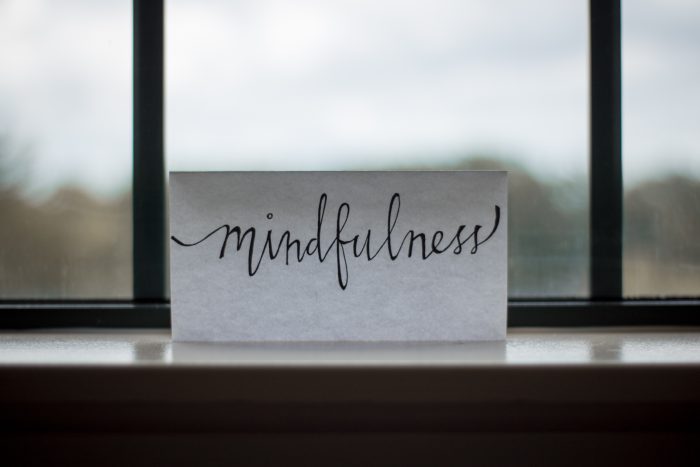According to the American Psychological Association, there are many benefits to practicing mindfulness such as increased immune function, healthier personal relationships, and reduced stress. If practicing self-care is your number one priority this year, starting with simple and everyday rituals is the easiest way to become more mindful and continue on the path of wellness with awareness and intention. Here are seven ways you can practice mindfulness right in the comfort of your own home.
- Waking up in the morning
How we wake up in the morning impacts our mood for the rest of the day. You can practice mindfulness upon awakening by choosing an alarm that has soothing sounds. After waking up, drink a glass of water and try to avoid checking your phone. Consider taking a walk or engaging in light stretching or gentle yoga to increase blood flow and circulation, while allowing your body and mind to slowly awaken.
- Doing chores
Making small changes to activities you already do every day like washing dishes or making your bed, can help with mindfulness. The next time you wash your dishes, focus on the texture of the sponge, the temperature of the water, and the scented dish soap. By focusing on these things, you allow your mind to be more present with the task at hand.
- Bathing
While bathing, we have an opportunity to engage all of our senses to practice self-care and become aware of our body’s overall health, while cultivating gratitude. Since bathing regularly in clean running water is a privilege, take the time to appreciate this opportunity and practice being gentle and loving with your body.
- Communicating with others
If you live with family or roommates, consider practicing mindfulness through listening. We often take the presence of our loved ones for granted and are not fully present with them. Listening is not just about the physiology of hearing, it’s about cultivating focus, intention, and awareness. Avoid focusing on the future or past while communicating and simply work on just “being” with the other person.
- Cooking
Because mindfulness is both a state of mind and a skill, it can be applied to cooking at every stage. Good Food states that you should bring conscious awareness to every stage of cooking when choosing meals and ingredients to feed yourself and/or loved ones. Additionally, tune into yourself and your senses by focusing on the task at hand and being fully aware of the senses involved.
- Eating
Eating mindfully is one of the easiest ways to practice all of our mindfulness skills, including gratitude, sensory and bodily awareness, focus, and intention. In our busy lives, we often plow through our meals, rarely considering the actual taste or how we feel while eating. This often leads to overeating and digestion problems. Slow down and turn off all distractions by putting away electronic devices and shutting off the television.
- Going to sleep
For those who struggle to fall asleep, developing a mindful bedtime ritual can help reduce stress and insomnia. You can practice mindfulness by creating a peaceful and calm sleep environment. For example, if you have faulty appliances or systems that continually make noise, lights that flicker, or any other distractions that are present, remove all of them to the best of your ability. Additionally, try to focus on the breath. Become a non-judgmental observer of your thoughts and engage in a body-scan to become more consciously aware and present.












Read 0 comments and reply